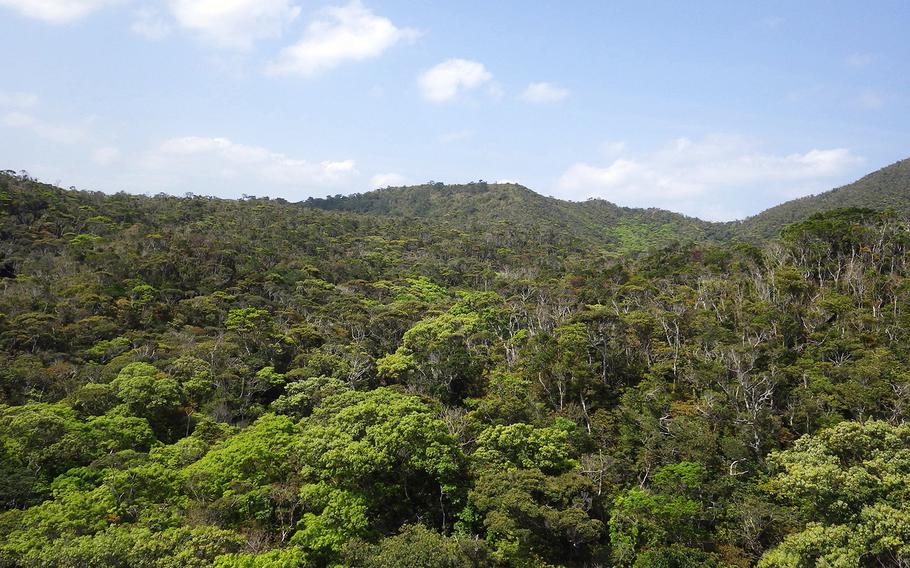Asia-Pacific
US, Japan agree to protect UNESCO sites, including former jungle training area
Stars and Stripes August 25, 2023

The U.S. and Japanese governments in July 2023 formalized an agreement over environmental stewardship of this evergreen broadleaved forest, a United Nations Educational, Scientific and Cultural Organization World Heritage Site, on Okinawa. (Japan’s Ministry of the Environment)
CAMP FOSTER, Okinawa — The U.S. and Japan have formalized an agreement to protect a World Heritage site on the northern tip of Okinawa where U.S. troops once trained for jungle warfare.
The agreement is short on specifics, but the two nations will monitor and control endangered and invasive species, maintain plans to protect cultural resources and promote partnerships between Okinawans and U.S. service members.
A spokeswoman for Japan’s Ministry of the Environment said the agreement — posted July 26 on the U.S. Forces Japan website — offered nothing new.
“We used this opportunity to articulate what we’ve done with the purpose of continuing it,” she said by phone Wednesday. Some government officials in Japan speak to the media on condition of anonymity as a requirement of their employment.
USFJ acknowledged receipt of an emailed inquiry Tuesday from Stars and Stripes but had not answered questions about the agreement as of Friday afternoon.
Okinawan environmental groups have long criticized the U.S. military for leaving behind trash and bullet casings in the former training area.
The area is part of a UNESCO World Heritage Site designated in July 2021 for approximately 165 square miles of subtropical rainforest on four southern islands in Kagoshima and Okinawa prefectures: Amami, Oshima, Tokunoshima, Iriomote and the northern part of Okinawa's main island.
“Entirely uninhabited by humans, the site has high biodiversity value with a very high percentage of endemic species, many of them globally threatened,” the World Heritage website said.
The area’s endangered plants and animals “represent ancient lineages and have no living relatives anywhere in the world,” according to UNESCO.
About half the World Heritage site on Okinawa's main island was part of the Northern Training Area, a sprawling complex that is home to the Jungle Warfare Training Center, also known as Camp Gonsalves, a spokeswoman from the prefecture's Environmental Division said by phone Thursday.
Approximately 15 square miles of the training area was returned to Japanese control in 2017; the U.S. military still controls approximately 14 square miles where training still takes place.
The Okinawa Environmental Justice Project — an "applied anthropology" organization aimed at protecting the environment and communities from an "overwhelming" U.S. military presence — welcomed the agreement but criticized what it views as shortcomings.
The wording of three action items in the agreement "is very vague and could be subject to misinterpretation and manipulation,” the group said in a July 26 statement. The local community and civil society members “need to be vigilant and participatory” to ensure proper stewardship takes place, the statement added.
The allied nations agreed to work through their joint Environmental Subcommittee, in accordance with previously signed treaties and environmental agreements.
Their governments will “contribute to the conservation of the natural environment … in the principle that the outstanding universal value of the area shall be maintained properly for succeeding generations.”
A World Heritage designation is given sites with “outstanding universal value to humanity,” the U.N. website said. Sites on the registry, like the pyramids in Egypt or Australia’s Great Barrier Reef, are to be protected for future generations. The registry currently lists 1,007 natural and cultural sites.